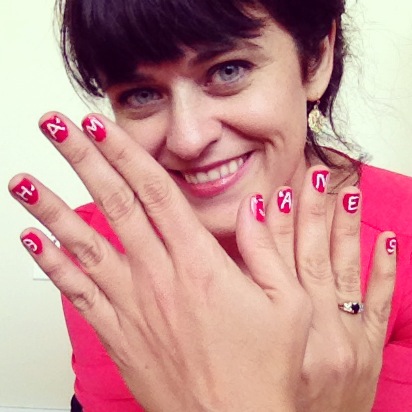
What’s the point? There comes a time when every blogger will ask herself this question.
Creating good content on a consistent basis is hard work and most of us aren’t pulling a paycheck from our posts. So why bother blogging in the first place?
Well, some folks do get lucky. Some bloggers build a massive following and grab the attention of big-name brands. Some bloggers generate enough revenue from ads, sponsored posts, and affiliate links to quit their day jobs.
But most of us do not. But here’s why you should keep blogging anyway.
Blogging can make you a better writer. Writing is a practice. Just as athletes must train to get better at their sport, writers must practice to get better at our craft. Blogs make for a great training field. Blogging has taught me how to be more concise in my writing and taught me how to write faster, even faster than I did as a reporter with the Associated Press! If you set a posting schedule for yourself, blogging can train you to meet deadlines, too.
Blogging can help your writing career. Blogging will only help you as a writer if you’re striving to post quality work. And it’s important that you don’t put out crap just to say you’ve updated your blog for the week. People are paying attention. Your blog could land you a book deal or at least opportunities to write for some of your favorite publications. Case in point, I have a journalism degree from UC Berkeley, but the editors I work with couldn’t care less. Nearly all of the regular freelance gigs I have right now I snagged because I blog. So while I don’t make money directly from my blog, I do get paid for my freelance work and so blogging like crazy is worth it.
Blogging can help you establish an online platform. And you can use this online platform to promote your book or business or to spread ideas.
Blogging can help you find community. Blogging can help you find like-minded people with whom you can wax poetic about your passions or just hang out with and have fun. You thought you were the only 35-year-old black woman in the South who loved comic books, graphic novels, and video games. But then you started a blog about this obsession of yours and now you have a gaggle of geeky gal pals to take with you to Dragon Con.
Blogging can help you position yourself as an expert. As I mentioned, most people don’t make much money directly from their blogs. But your blog is a great way for you to promote your expertise. So use your fitness blog to promote yourself as a personal trainer. Use your fashion blog to promote yourself as a stylist. Take for example, Megan LaRussa Chenoweth, who owns the style coaching service Southern Femme. Chenoweth a top-notch, in-demand image consultant and personal shopper and is also a stylist for several magazines and fashion shows. But Southern Femme actually began as a fashion blog. Chenoweth used SouthernFemme.com to show off her style expertise and soon she went from bloganista to businesswoman.
Why do you blog?
Are you interested in blogging more but having trouble finding the time to do so? Then don’t miss the launch of my time management e-course. To be notified of the launch date, simply click here and sign up for my personal blog’s newsletter.
Each day in November for #bloglikecrazy I’ll be publishing a blog post that answers your questions about blogging, social media, writing, wellness or women’s empowerment. Send your questions to javacia@seejanewritebham.com.








